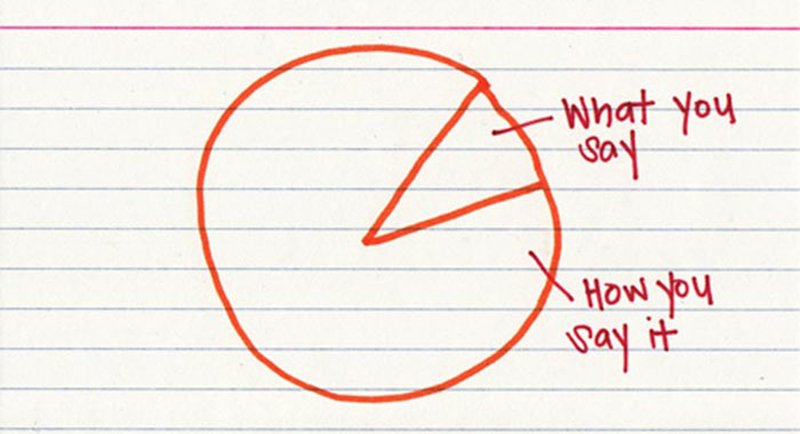I think effective communication is crucial, whether spoken or written. When you're speaking, it's your responsibility to ensure your message is delivered effectively and this holds true not only for salespeople but also for sales managers and company leaders. This is because what you say will be shared, forwarded, and copied, therefore, it's essential to craft a well-structured narrative. This way, your message can be easily understood in the moment and remembered when shared with others in your absence. Your written communication should also be compelling enough to sell your ideas when you're not present.
It's your presence not your presents
Great communicators all have great presence, 65% of the impression you leave on someone has little to do with your message, it has to do with your verbal delivery, facial expressions, and body language. It’s important to make eye contact 80 to 90% of the time, maintain an open posture and use hand gestures. Take your hands out of your pockets and be animated in your voice and body.
Never forget that you are selling dreams and products because your customers do not care about our company. They don’t care about your products and services, but they do care about themselves, their hopes and dreams, their goals, and ambitions. Your job as a sales professional is to inspire your customers and help them achieve their dreams. Think about how to communicate and articulate the vision behind your products and services, and then focus on your customer’s needs, hopes and goals.
What did you say?
Verbal communication is a skill, one must be careful about how you say things to avoid misunderstandings because everyone has different meaning for same words. In this world what you say doesn’t matter as much as how you say it. When putting forward an opinion, you need to think about your choice of words, your gestures, body language and about your tone intensity pitch.
My father always used to say, “It’s not what you say, it’s the way that you say it!” I think that this is correct and incorrect at the same time, as it's both what you say AND how you say it. The non-verbal components of an assertive message are really the key to its effectiveness. When a customer sees you - your look and your body language - you are already communicating to them, non-verbally, and they are deciding whether or not they want to listen.




